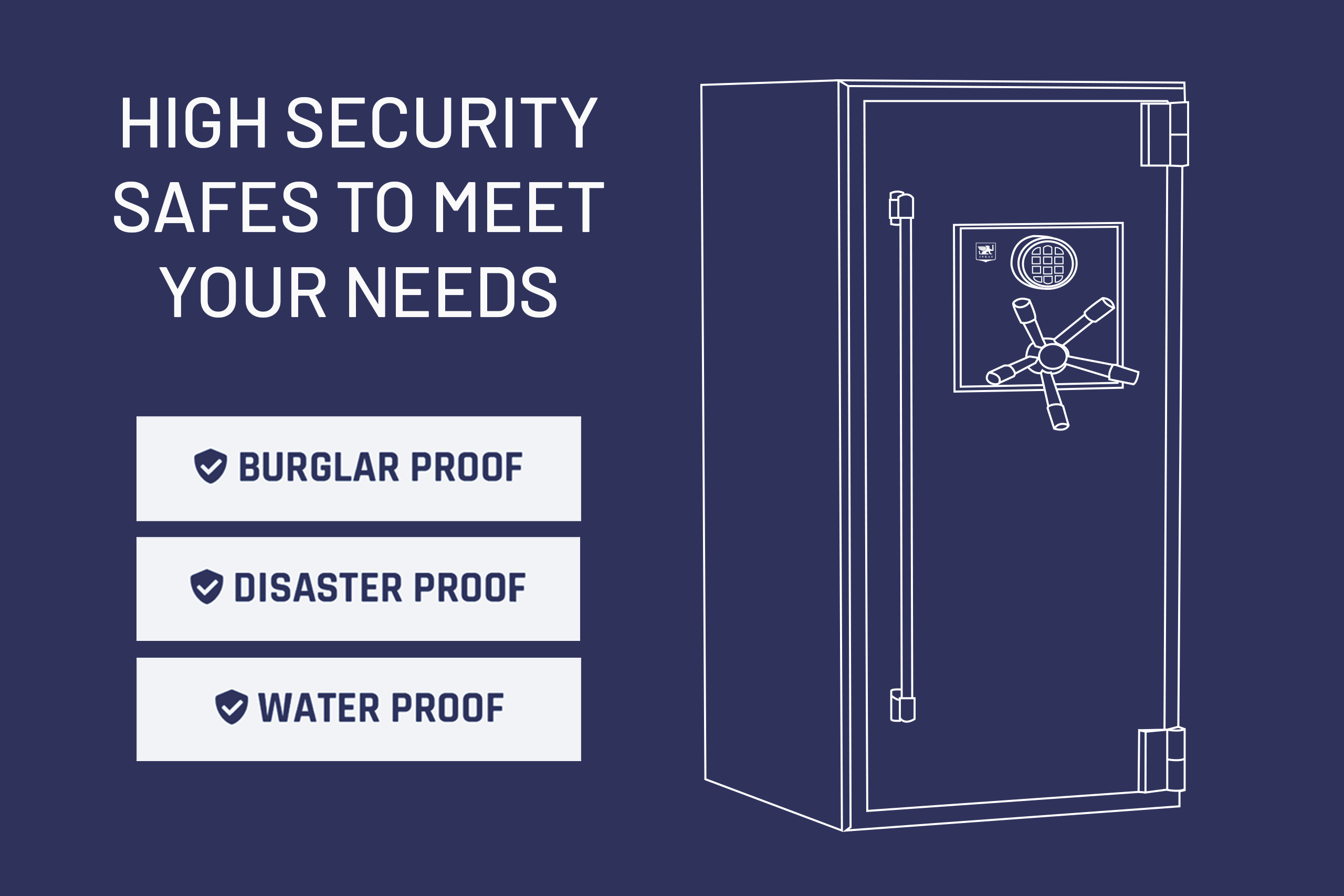
Buying a safe to store your valuables is a smart move. Of course, you’ll want to get the right safe. To do that, you’ll want to be sure to consider these top 10 factors.
1. What Is in the Safe?
What you plan to store will change which safe you need. The device you’d buy to store firearms isn’t the same one you’d buy to keep documents safe from fire or to store digital documents.
2. Types of Safes
There are a few different “types” of safe to consider. You’ll likely look at three major categories:
- Wall safes
- Floor safes
- Weapons safes
Wall safes are usually the best bet for documents, but they’re less optimal for bulky items like hard drives or jewelry. A floor safe can support much more weight.
3. Size of Safe
Next, you’ll want to determine the size. If you’re storing a few paper documents, you may not need a very big safe. If you want to house a few antiques, hard drives, or other big items, then you’ll want more space.
4. What Kind of Protection Is Needed?
A fireproof safe may not protect against theft. It may not even protect hard drives or other digital devices from humidity and moisture, which could damage them.
Carefully consider the type of protection you need.
5. Think about Budget
If you don’t have a big budget, then you may want to consider a smaller safe or one with a lower rating.
It’s usually best to think about quality over price, since you’re hoping to protect your valuable items. Always look for ways to get the most value out of what you can spend.
6. Accreditation Considerations
Accreditation assures you that the safe meets certain standards. Whenever possible, invest in a safe that has accreditation.
7. Types of Lock
A traditional dial lock may be one option. A digital lock is often another. Digital locks allow faster access, but they take batteries.
8. Anchor Points
Most safe companies include anchor points on their safes, allowing you to bolt the safe down. That makes it more difficult to walk off with if an invader can’t break the lock.
9. Safe Construction
Consider the construction of the safe body and door. Higher steel gauges mean the metal is thinner, which could allow forced access. Concrete and cement offer more protection than gypsum board.
10. Safe Placement
Finally, give some thought to where you’ll place the safe. Will it be hidden, or will it be in plain sight?
Discover Your Options
If you’re thinking about all these factors, but you’re still not sure, it’s time to get in touch with the experts. The team at INKAS® Safes will help you discover the right safe for your needs.

